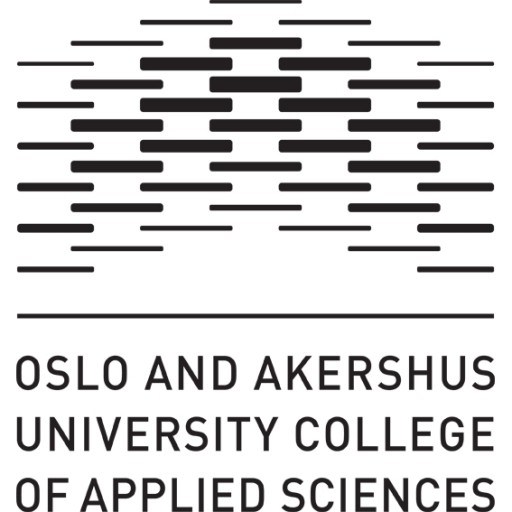Photos of university / #Norduniversitet
The Master of Social Science provides an in-depth knowledge of analytical, methodological and theoretical approaches to Social Science. The three specializations are Social Work with a Comparative Perspective, West Nordic Studies and International Northern Development.
The Bachelor’s degree program in Social Science at Nord University offers a comprehensive and multidisciplinary curriculum designed to provide students with a deep understanding of societal structures, human behavior, and social processes. Throughout the program, students explore critical issues such as social inequality, cultural diversity, governance, and community development, equipping them with the analytical and practical skills necessary to address complex social challenges.
The program combines theoretical coursework with practical applications, enabling students to develop a nuanced perspective on social phenomena. Core courses include sociology, political science, anthropology, and psychology, which are complemented by electives that allow students to tailor their studies to specific interests such as gender studies, environmental social sciences, or urban development. Throughout their studies, students engage in case studies, participatory research, and policy analysis, fostering both academic and applied competencies.
Nord University’s strong emphasis on real-world experience is reflected in the opportunities for internships and collaborative projects with local communities, public agencies, and NGOs. These practical experiences are designed to enhance students’ understanding of societal issues and to prepare them for careers in public administration, social research, community development, or advocacy work. The program also encourages international exchange and collaboration, broadening students’ global perspectives and intercultural understanding.
Graduates of the Social Science program gain vital skills in critical thinking, communication, and teamwork, all of which are essential for effective professional practice in diverse social environments. The program prepares students for lifelong learning and further studies, including Master’s programs in related fields such as sociology, political science, or public administration. With a thorough grounding in social science theories and methods, graduates are well-equipped to contribute to positive societal change and to work effectively in sectors dedicated to promoting social justice, sustainability, and community well-being.
Requirements for the Social Science degree program at Nord University typically include a completed application form submitted via the university’s admissions portal, along with official transcripts from previous education demonstrating sufficient academic performance. Applicants are usually required to have a qualifying secondary school diploma or equivalent, with suitable grades in relevant subjects such as social sciences, humanities, or related fields. Proficiency in English must be demonstrated through standardized tests such as IELTS or TOEFL, meeting the minimum score requirements specified by the university. Additionally, applicants may need to submit a personal statement or motivation letter explaining their interest in social sciences and their academic and career goals. Some programs might also require references or letters of recommendation from teachers or previous employers to assess the applicant's suitability and motivation for the program. Relevant work experience in social or community projects could be considered an advantage but is generally not mandatory. The admission process may also include an interview or assessment centre to evaluate the applicant’s communication skills, critical thinking, and motivation. For international students, proof of valid student residence permit or visa arrangements might be necessary. The university emphasizes the importance of academic integrity and expects that all submitted documents are authentic. Candidates should ensure that all prerequisites are met before applying to avoid delays or possible rejection. Specific requirements can vary year by year based on curriculum updates, so prospective students should consult the official Nord University admissions webpage for the most accurate and current information regarding application procedures, entry criteria, and deadlines. It is recommended that applicants carefully review the program-specific information provided by the university to prepare their application materials thoroughly and demonstrate their genuine interest and preparedness for studies in social sciences.
Financing for the Social Science degree program at Nord University is primarily determined by Norwegian higher education funding policies and the type of student enrollment. For students enrolled in the program, tuition fees are generally covered for Norwegian and EU/EEA students due to the Norwegian government’s commitment to providing free higher education. This policy ensures that domestic and EU/EEA students can pursue their studies without paying tuition, making education accessible and promoting academic mobility within the European economic area.
For international students outside the EU/EEA, tuition fees may be applicable, and these vary depending on the specific program and level of study. The fees are set annually by Nord University and are designed to reflect the cost of delivering the program while remaining competitive within the Nordic region. Students are advised to check the official Nord University website or contact the admissions office for the most current fee schedule and available scholarship opportunities.
In addition to tuition fees (where applicable), students are responsible for living expenses, including accommodation, food, transportation, study materials, and personal costs. Nord University offers various financial aid options, including scholarships and grants aimed at both domestic and international students to help offset living expenses. These financial supports are usually awarded based on academic merit, financial need, or specific criteria related to the applicant’s background.
Norwegian students commonly access government student loans and grants through the Norwegian State Educational Loan Fund (Lånekassen), which provides financial support to cover living costs and part of tuition fees for students studying in Norway. International students, depending on their circumstances, may also be eligible for scholarships or financial assistance from private foundations or international organizations.
Work opportunities during studies may also contribute to financing the degree program. Many students engage in part-time work, both on and off campus, to supplement their income. Norwegian labor laws facilitate part-time employment for students, offering flexible working hours that do not interfere with academic progress. Typically, students can work up to 20 hours per week during the semester and full-time during holidays, which helps them manage living expenses effectively.
Funding for the program is supported by national education funds, university budgets, and external collaborations with government agencies and private sector partners. Nord University actively seeks partnerships and grants that further support research, student exchange, and internship opportunities, which can also provide additional financial resources for enrolled students.
Overall, the financing of the Social Science program at Nord University is structured to minimize financial barriers for local students, provide targeted support to international students, and facilitate a balanced approach to funding through government aid, scholarships, part-time work, and university resources. Prospective students are encouraged to explore all available funding options early in their application process to ensure they can effectively plan for the financial aspects of their studies.
Social Science at Nord University offers students a comprehensive understanding of societal structures, human behavior, and the socio-economic factors that shape modern communities. The program is designed to provide a multidisciplinary approach, combining insights from sociology, political science, psychology, and economics to prepare students for diverse careers within the public and private sectors. Throughout the program, students engage in theoretical studies as well as practical applications, including research projects, internships, and fieldwork, which foster analytical thinking and problem-solving skills. The curriculum emphasizes contemporary social challenges such as equality, migration, urban development, and digital transformation, ensuring that graduates are equipped to contribute meaningfully to societal development and policy-making. Nord University emphasizes innovative teaching methods, including collaborative work and real-world case studies, enabling students to develop critical perspectives and adaptable skills. The program also encourages internationalization, with exchange opportunities and collaborations with institutions abroad, enhancing students' global outlook and intercultural competence. Graduates of the Social Science program are well-prepared for careers in governmental agencies, non-profit organizations, research institutions, and private companies, where they can leverage their understanding of societal dynamics to influence policy, improve community welfare, and promote social justice. The program's strong emphasis on research, combined with dedicated faculty expertise, creates an enriching academic environment conducive to scholarly growth and professional development. Overall, studying Social Science at Nord University provides students with essential knowledge and skills to actively participate in and shape society, both locally and globally.









